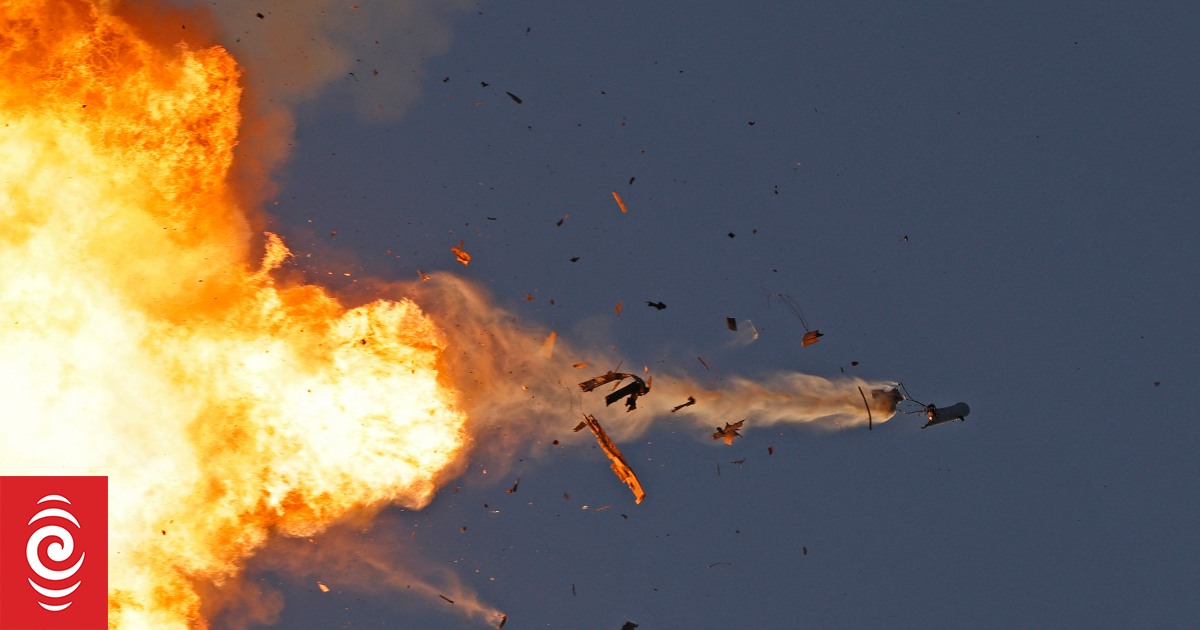
This photo taken from a position in northern Israel shows a Hezbollah UAV intercepted by Israeli air forces over north Israel on 25 August.
Photo: AFP / JALAA MAREY
Hezbollah launched a major barrage of missiles against Israel on Sunday in retaliation for the assassination of a senior commander in Beirut last month, the Iranian-backed movement said, as Israel’s cabinet met to prepare a response.
Israeli jets hit targets in Lebanon shortly before the strikes were launched as the military assessed that Hezbollah was preparing to begin the barrage.
“The IDF identified the Hezbollah terrorist organization preparing to fire missiles and rockets toward Israeli territory. In response to these threats, the IDF is striking terror targets in Lebanon,” the Israel Defence Forces said in a statement.
Israel’s cabinet was to meet at 4pm, Prime Minister Benjamin Netanyahu’s office announced.
Flights to and from Ben Gurion airport in Tel Aviv were suspended, the airports authority said, and the defence minister declared an emergency.
Warning sirens sounded in northern Israel and multiple explosions were heard around several areas as Israel’s Iron Dome aerial defence system shot down rockets coming from southern Lebanon. Israel’s Magen David Adom ambulance service said it was on high alert all over the country.
Expectations of an escalation between the two sides had risen since a missile strike in the Israeli-occupied Golan Heights last month killed 12 youngsters and the Israeli military assassinated a senior Hezbollah commander in Beirut in response.
The Israeli military said new civil defence instructions would be issued to the population shortly. It warned civilians in southern Lebanon to stay away from areas where Hezbollah operates.
The strikes came as negotiators were meeting in Cairo in a last-ditch effort to conclude a halt to fighting in Gaza and a return of Israeli and foreign hostages in exchange for Palestinian prisoners.
Hezbollah fired missiles at Israel immediately after the 7 October attacks by Hamas gunmen on Israel. Hezbollah and Israel have been exchanging fire constantly ever since, while avoiding a major escalation as war rages in Gaza to the south.
That precarious balance appeared to shift after the strike in the Golan Heights, for which Hezbollah denied responsibility, and the subsequent assassination of Fuad Shukr, a senior military commander in Beirut.
Shukr’s death in an air strike was quickly followed by the assassination of Hamas political leader Ismail Haniyeh in Tehran, which led to vows of reprisal against Israel by Iran.
– Reuters

